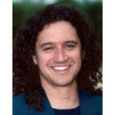First, a message to my readers who practice TM® (Transcendental Meditation®):
I am not taking any position for or against Maharishi Mahesh Yogi, the TM® organization, TM® itself, or anything else related to TM®.
Now that we've taken care of that…
I do, however, have a position regarding the studies that have been promoted to "prove" that TM® is the best thing since meditatively sliced bread.
My basic position is this:
Most of these studies, maybe all of them, are pretty questionable.
Before any of the previously mentioned TM® advocates "get all up in my grill," (love that saying!), allow me to state my general position on meditation studies.
Most of these studies, maybe all of them, are pretty questionable.
I want you to understand that my criticism is about meditation studies overall and not about transcendental meditation. It just that TM® pays for more meditation studies than the Zen or the Vipassana groups do. It also has a larger outreach program, partly because of financial support from wealthy TM® practitioners such as film director David Lynch.
So here’s my complaint.
There was an article I read recently claiming, "Mediation Seen as Promising ADHD Therapy." It reported the positive impact of practicing TM® for kids with ADHD.
The problem comes from the fact that the design of the study doesn't permit you to come to the suggested conclusion.
How come?
Let’s begin with the most obvious problem, the size of the sample. The article reported, "The study included 10 children between the ages of 11 and 14."
TEN kids????
Ten children is a totally insufficient sample size for any conclusions at all.
That alone is enough to invalidate any claims the article makes.
But for fun, let's pretend they sampled 1,000,000 people. What was their method for determining that the students got better? "[T]heir ADHD symptoms also improved, based on questionnaires given to teachers and parents."
HUH?!
Questionnaires like this are more often than not completely meaningless. There is simply no way to get objective measurement from an opinion questionnaire. They are too tainted by cognitive biases (like, if you were observing your kid meditating for twelve weeks in the hopes that it would improve their ADHD, your natural instinct would be to search for any small sign that it was working, instead of finding something objective you could measure to determine its effectiveness without any of your opinions getting in the way).
So, here is the next problem: there was no control group of any kind.
To claim that students who didn't meditate are a control group is incorrect.
The meditating students need to be compared to students receiving some other intervention, such as napping for ten minutes twice each day. Or perhaps using a different meditation technique. Or maybe getting a new medication (one which was actually a placebo).
Then there is the fact that the teacher was aware of the study's search for improvements due to meditation (studies have demonstrated that teachers who are told they have gifted students will end up having students who do better even if they aren't, in fact, really gifted).
There is more I could say about this, but I am not writing a treatise on how to design a good meditation study, be it for Transcendental Mediation® or any other practice. I really just wish that studies on meditation could be done well enough to give us REAL results to look at.
(BTW, TM® and Transcendental Meditation® are registered trademarks of the Maharishi Foundation, Ltd.)
Steven Sashen began meditation when he was eight years old, was one of the first biofeedback pioneers, and researched cognition and perception at Duke University. In addition to a successful career as an entrepreneur and entertainer, Steven has taught transformational techniques around the world and developed the Instant Advanced Meditation Course, which Dr. Gay Hendricks calls, "Perhaps the fastest and easiest way to relax, expand awareness, and find deep inner-peace."
Additional Resources covering Meditation can be found at:
Website Directory for Meditation
Articles on Meditation
Products for Meditation
Discussion Board
Steven Sashen, the Official Guide To Meditation

Post new comment
Please Register or Login to post new comment.